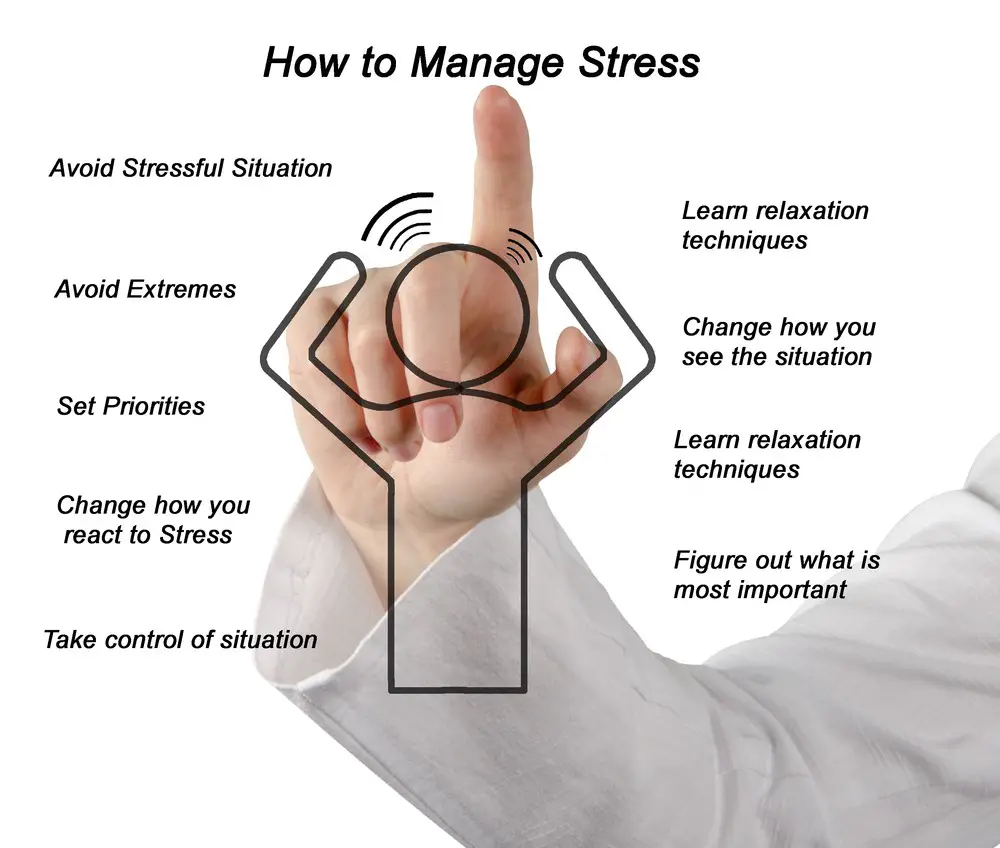As a BetterHelp affiliate, we receive compensation from BetterHelp if you purchase products or services through the links provided
Stress has become a standard part of our lives in today’s fast-paced world. While some stress is typical, chronic stress can affect our well-being. Finding ways to manage stress and focus on mental health is essential. This blog will explore simple and effective ways to manage stress. These strategies are easy to incorporate into your daily routine. Also, they will help you improve your mental health.
Stress
Stress is a natural response to a perceived threat or challenge. It is the body’s way of preparing to deal with a difficult or dangerous situation. In the face of a stressor, the body releases hormones such as adrenaline and cortisol. These hormones trigger the “fight or flight” reaction.
Although some stress can be beneficial, excessive stress can adversely affect your health. Stress can cause various symptoms, such as anxiety, depression, and irritability. Also, prolonged stress increases the risk of health problems like diabetes and chronic pain.
Factors that generate stress
Many different factors can generate stress. Some of the most common factors are:
– Job stress
– Economic stress
– Relationship stress
– Life changes
– Environmental stress
– Social stress
– Health-related stress
Some diseases, such as varicose veins, can generate feelings of stress, mainly because of the aesthetic problems caused by these diseases. The good news is that there are now minimally invasive treatments to eliminate varicose veins. You may visit a varicose veins clinic in Phoenix so that they can recommend the best therapy for you.
It is essential to recognize what causes you stress so you can take steps to manage it.
Simple Ways to Manage Stress

Stress is a normal part of life. But it can negatively affect your health if not managed properly. Here are some simple ways to manage stress:
Eat a healthy diet
Following a healthy diet can also help reduce stress and improve mental health. Eat a balanced diet that includes fruits, vegetables, whole grains, and lean proteins. Avoiding processed foods and excess caffeine can also help improve mental health.
Take nutritional supplements
Some nutritional supplements have been shown to have potential stress-reducing benefits. Omega-3 fatty acids, magnesium, and B vitamins help improve mental health. Before starting any new supplement regimen, consult a naturopathic doctor.
Exercise regularly
Regular exercise is an effective way to reduce stress and improve mental health. When you exercise, you release endorphins, natural mood-boosting compounds. Also, exercise can provide a sense of accomplishment. This feeling can help reduce feelings of stress and anxiety.
Practicing mindful meditation
Mindful meditation involves focusing your attention on the present moment. By doing so, you can become more aware of your thoughts and feelings. You can learn to let go of negative emotions. Regular practice of mindfulness meditation reduces stress, anxiety, and depression.
Get enough sleep
Sleep is crucial to health. Lack of sleep can worsen feelings of stress and anxiety. It is vital to get 7-8 hours of sleep every night and establish a consistent sleep routine. Avoid caffeine and electronics before bedtime to help you fall asleep better.
Practice deep breathing
Deep breathing is a simple and efficient stress and anxiety reduction technique. It can help slow your heart rate and reduce feelings of tension. When you feel stressed, take several deep breaths. Focus on the sensation of the air moving in and out of your body.
Practice hobbies
Practicing hobbies can help reduce stress and improve mental health. Hobbies provide a sense of purpose and fun. These activities can be a beneficial distraction from stressors.
Seek support
Seek support from loved ones and a mental health professional if you have stress issues. Talking about your feelings can help you reduce stress and provide relief.
Practice gratitude
The practice involves concentrating on the positive parts of life and expressing gratitude for them. Gratitude can help divert attention away from stressors and negative emotions.
Limit exposure to news and social media
Excessive exposure to news and social media can be overwhelming. This overexposure can contribute to feelings of stress and anxiety. It is crucial to set boundaries and limit exposure to these sources of information.
Take breaks
Taking breaks throughout the day can help reduce feelings of stress. Breaks can help recharge batteries, reduce stress levels, and increase productivity. You can take a short walk outdoors or meditate for a few minutes.
Conclusion
Managing stress and improving mental health is an essential aspect of wellness. Remember to focus on self-care and seek support when necessary. By taking these steps, you will improve your mental health and live a more fulfilling life.
- 7 Ideas to Help You Relax and Unwind on a Family Vacation - April 27, 2025
- How Having Cybersecurity Protection Helps You Relax - April 25, 2025
- 8 Reasons Why Spending Time Outside Calms You Down - April 25, 2025
This site contains affiliate links to products. We will receive a commission for purchases made through these links.



